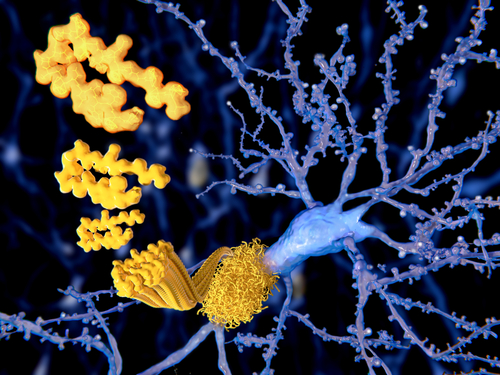FDA Grants Fast Track Status to Alzheon’s Alzheimer’s Therapy Candidate ALZ-801

The U.S. Food and Drug Administration has granted Fast Track status to Alzheon’s Alzheimer’s therapy candidate ALZ-801, which studies have shown prevents the clustering of harmful proteins associated with the disease.
“We look forward to working closely with the FDA as we seek to make progress in developing a disease-modifying treatment for Alzheimer’s disease to address the needs of Alzheimer’s patients and their families who struggle with this devastating disease,” Dr. Martin Tolar, Alzheon’s president and chief executive officer, said in a press release.
Fast track status helps a company accelerate its development of a therapy and obtain faster regulatory review.
ALZ-801 prevents the formation and clustering of harmful proteins that play a role in the development of Alzheimer’s. It does this by releasing the nerve-cell-protecting compound tramiprosate, which travels to the brain to prevent harmful protein clustering.
Studies in mice have shown that tramiprosate can reduce by 30 percent the amount of amyloid plaque that forms in the brain.
Some genes are associated with the development of Alzheimer’s. About 65 percent of patients have at least one copy of the APOE4 gene — from either their mother or father — and 10 to 15 percent have two copies, one from each parent. Those with the gene are at higher risk of developing Alzheimer’s, and of having the disease appear early.
Alzheimer’s patients with two copies of the APOE4 gene benefit the most from ALZ-801, two Phase 3 clinical trials (NCT00088673 and NCT00217763) have demonstrated. The trials involved people with mild to moderate forms of the disease.
Patients with two copies of APOE4 commonly experience faster cognitive decline during each stage of the disease due to higher and faster accumulation of the toxic protein clusters.
These findings prompted Alzheon to switch to a precision medicine approach for its continued development of ALZ-801.
The initial Phase 3 trials that it plans will involve patients with APOE4 genes and a mild form of Alzheimer’s. Later studies will cover a broader patient population.
“We have built a strong body of original research and clinical analyses that support the initial evaluation of ALZ-801 in the genetically defined high risk population of APOE4/4 homozygotes,” Tolar said. The findings prompted Alzheon to decide to “pioneer a precision medicine approach in Alzheimer’s, and to move toward an upcoming pivotal [clinical trial] study and potential approval as quickly as possible.”






